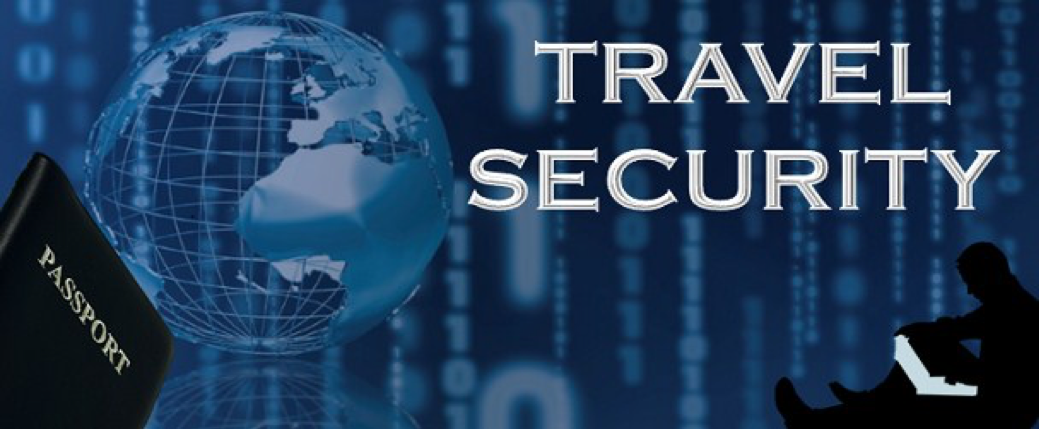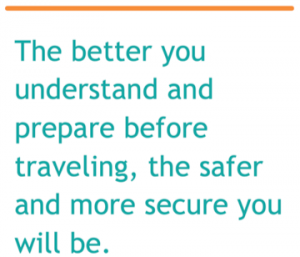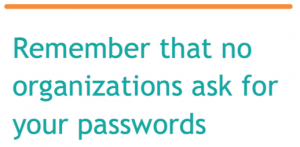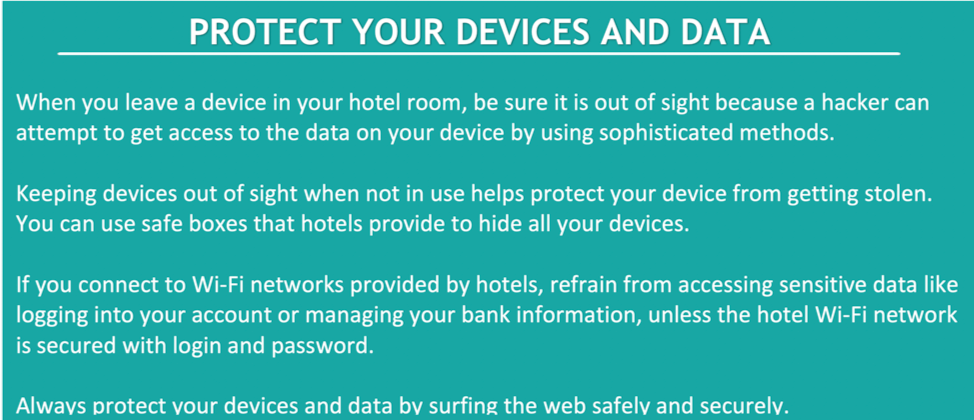
We are InfoSec: Members of the Information Security Department at KAUST.
Our mission: To enable you to be a Human Firewall by shielding yourself, your family, and KAUST from today’s cyber-attacks.
Cyber attackers have developed sophisticated methods to guess or brute force passwords, and they are constantly getting better at it.
 Traveling internationally is an exciting experience whether it’s for business or vacation, but you have to understand that every country has its own unique set of risks and cultural issues that could affect your virtual data. Before traveling it is advised for you to understand the country’s laws and regulations about how your data is being managed so you can limit being compromised.
Traveling internationally is an exciting experience whether it’s for business or vacation, but you have to understand that every country has its own unique set of risks and cultural issues that could affect your virtual data. Before traveling it is advised for you to understand the country’s laws and regulations about how your data is being managed so you can limit being compromised.
Thus, there are ways to protect your data by reading the country’s laws and regulations, having up to date software, using encryption methods, not forgetting your devices and ask us in case you need more information on how to be secure while traveling.
Laws and Regulations: Before traveling it is important to read the laws and regulations for the country you are visiting because some countries restrict certain devices being entered in the country.
Stay up-to-date: Keeping your devices and apps up to date is also one of the ways you can protect yourself from cyber threats. Updating your devices and apps ensures that you have the latest security fixes required, also make sure your personal devices have anti-virus software. If you don’t have one already installed, you can download KAUST provided Traps for free from https://antivirus.kaust.edu.sa.
Stay Encrypted: If using a public network, it is advised to use VPN. The purpose of VPN is to provide a tunnel for encrypted internet traffic, this means it redirects your internet traffic to a remote server, encrypting the traffic. This reduces the risk associated with using public Wi-Fi. Always make sure you are connected to a trusted network, especially when typing sensitive and private data.
 Trusted Contact: Before traveling, it is advised to save a trusted individual’s contact number, so in case of an emergency they can assist you with your situation.
Trusted Contact: Before traveling, it is advised to save a trusted individual’s contact number, so in case of an emergency they can assist you with your situation.
Check your devices: It is common for people to forget their devices at airports, in taxis or at hotels due to urgency or oversight, so before leaving an area or a vehicle make sure you have all your devices with you. To be extra careful enable password protection on all your devices.
Ask InfoSec: If you have any others questions about security or any concerns or how to stay secured, you can reach out to us at askinfosec@kaust.edu.sa, or visit the IT Helpdesk at Level 2 of Building 14.
Now is the time to be a Human Firewall.
If you haven’t already done so before, you can log in to https://humanfirewall.kaust.edu.sa and learn more by going through our eLearning courses.
You can also reach out to us to attend our monthly security awareness sessions and cyber cafe to learn the latest tricks cyber attackers are using and how you can spot and defend against them.
The lessons you will learn will help to protect you, whether at work or at home. We want you to be a Human Firewall, and your mission starts now; reach out to us at AskInfoSec@kaust.edu.sa.
KAUST IT
We make IT happen!



